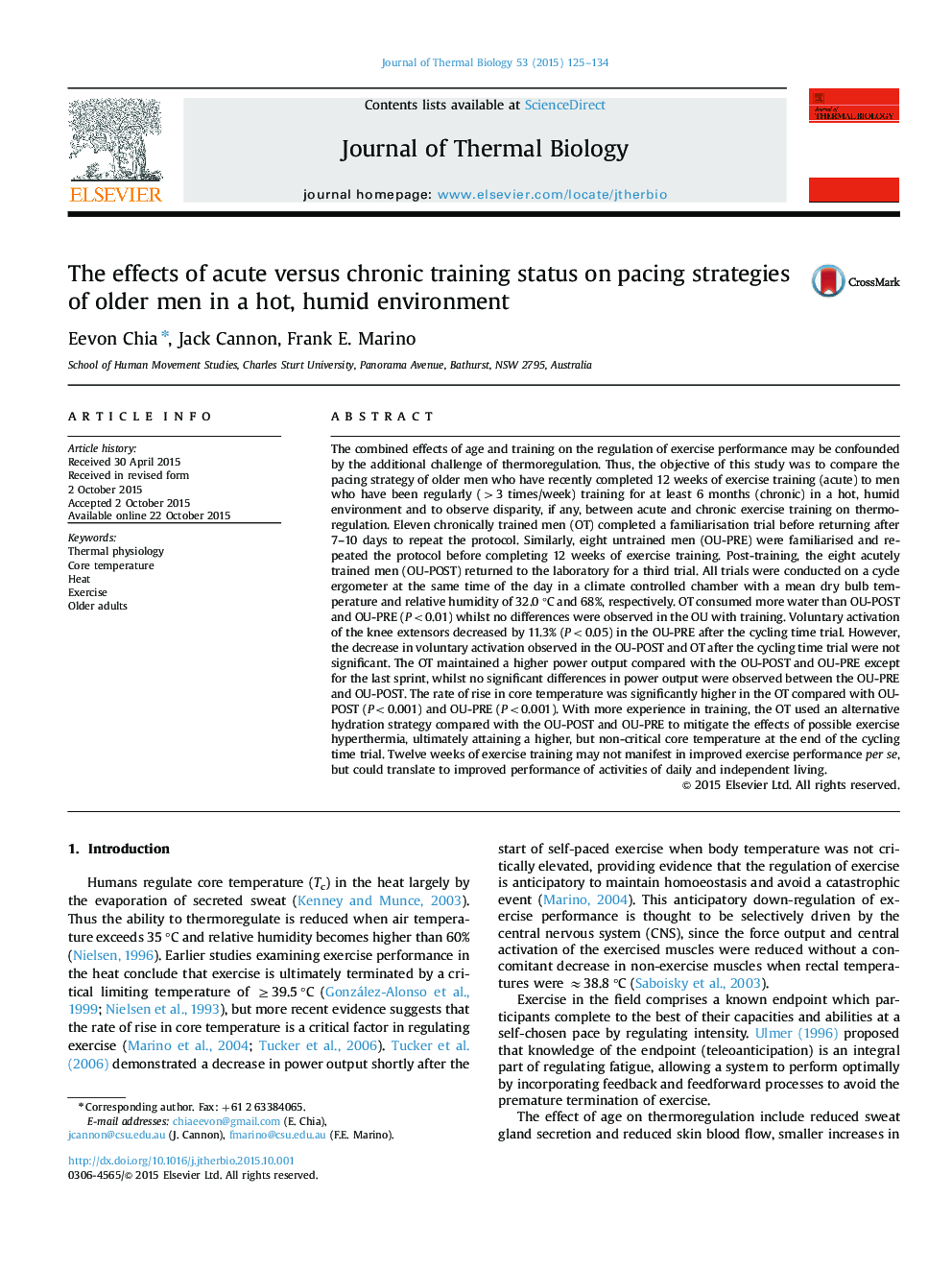| Article ID | Journal | Published Year | Pages | File Type |
|---|---|---|---|---|
| 2842786 | Journal of Thermal Biology | 2015 | 10 Pages |
Abstract
The combined effects of age and training on the regulation of exercise performance may be confounded by the additional challenge of thermoregulation. Thus, the objective of this study was to compare the pacing strategy of older men who have recently completed 12 weeks of exercise training (acute) to men who have been regularly (>3 times/week) training for at least 6 months (chronic) in a hot, humid environment and to observe disparity, if any, between acute and chronic exercise training on thermoregulation. Eleven chronically trained men (OT) completed a familiarisation trial before returning after 7-10 days to repeat the protocol. Similarly, eight untrained men (OU-PRE) were familiarised and repeated the protocol before completing 12 weeks of exercise training. Post-training, the eight acutely trained men (OU-POST) returned to the laboratory for a third trial. All trials were conducted on a cycle ergometer at the same time of the day in a climate controlled chamber with a mean dry bulb temperature and relative humidity of 32.0 °C and 68%, respectively. OT consumed more water than OU-POST and OU-PRE (P<0.01) whilst no differences were observed in the OU with training. Voluntary activation of the knee extensors decreased by 11.3% (P<0.05) in the OU-PRE after the cycling time trial. However, the decrease in voluntary activation observed in the OU-POST and OT after the cycling time trial were not significant. The OT maintained a higher power output compared with the OU-POST and OU-PRE except for the last sprint, whilst no significant differences in power output were observed between the OU-PRE and OU-POST. The rate of rise in core temperature was significantly higher in the OT compared with OU-POST (P<0.001) and OU-PRE (P<0.001). With more experience in training, the OT used an alternative hydration strategy compared with the OU-POST and OU-PRE to mitigate the effects of possible exercise hyperthermia, ultimately attaining a higher, but non-critical core temperature at the end of the cycling time trial. Twelve weeks of exercise training may not manifest in improved exercise performance per se, but could translate to improved performance of activities of daily and independent living.
Related Topics
Life Sciences
Agricultural and Biological Sciences
Agricultural and Biological Sciences (General)
Authors
Eevon Chia, Jack Cannon, Frank E. Marino,
